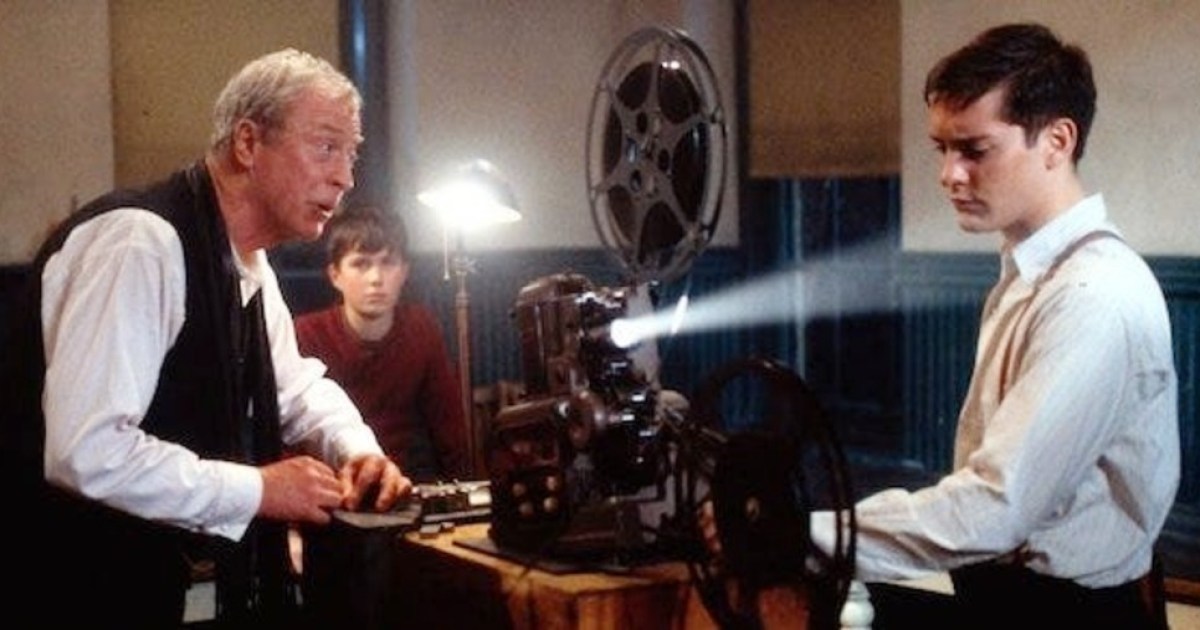We all have our traditions for Christmas. Some sing carols around the neighborhood while others wear ugly sweaters to work and make gingerbread at home. For myself, every year I always go to one place of worship on Christmas Day: the movie theater. I’ll be there this year, plunging myself into the Gothic darkness of Robert Eggers’ Nosferatu remake, watching Nicole Kidman submit to unspeakable carnal pleasures in Babygirl, and witnessing the birth of Bob Dylan in A Complete Unknown.
For as long as I can remember, I’ve gone to the theater on Christmas and watched three or four movies, usually from different genres, and it’s always been the one present to myself that’s satisfied me the most. But there was one year when my holiday movie marathon hit a perfect score, all 10s, and no notes: 1999. That was a great movie year, so it stands to reason its Christmas Day offerings would tower over the rest.
The following four films aren’t beloved by all; there’s at least one movie that’s now virtually forgotten, and another looked down upon by mainstream critics. Still, these movies made such an impression on me that I still remember them, and my experience seeing them, 25 years later. 1999 truly did have the greatest lineup of Christmas Day movies ever, and here’s why that matters today.
The Cider House Rules

Lasse Hallström’s adaptation of John Irving’s novel had a staggered theatrical release rollout, so while it technically premiered on December 10, it didn’t reach Dallas, my hometown, until Christmas Day. This was one of the big Oscar movies of the season, and distributor Miramax’s best hope to replicate the critical and commercial success they achieved one year earlier with Shakespeare in Love. They didn’t quite get there; The Cider House Rules was liked by some, dismissed by others. No one loved it, though, and that was its main problem; it’s a movie engineered to be adored and awarded, not shrugged at and dismissed.
I really, really liked it. Both then and now, The Cider House Rules works an effective Bildungsroman (or coming-of-age story) and is probably the best Irving film adaptation so far. (Admittedly, that’s not saying much.) A pre-Spider-Man Tobey Maguire stars as Homer Wells, a young orphan who, after being raised by kindly Dr. Wilbur Larch (Michael Caine) at a New England orphanage, ventures out into the world with a visiting couple, Wally (Paul Rudd) and Candy (Charlize Theron). On Wally’s family’s apple orchard, Homer learns about life through an affair with Candy and by befriending the orchard’s workers. After several life-altering experiences and a little bit of heartbreak, he returns home, a little sadder, but a lot wiser.
There’s nothing groundbreaking about The Cider House Rules, but it never promised anything as formally innovative as Being John Malkovich or Magnolia, two other fall 1999 releases. Irving had essentially created an American Oliver Twist, and Hallström captures Homer’s Dickensian journey with a laid-back lyricism that never gets too stuffy. Maguire followed through on the promise he showed in The Ice Storm with his sensitive, wide-eyed performance here while Theron, then still thought of as a bombshell, is captivating as the quietly sad Candy. It’s Caine’s performance as Wilbur, though, that lingers; he won an Academy Award for it, and it’s not hard to understand why after watching him lose his adopted son to adulthood.
Galaxy Quest

I intentionally slotted Galaxy Quest as my second movie as a break from the more intense movies in my marathon. The studio probably had a similar idea when it chose to release it on Christmas. The result was a hit personally (I welcomed the respite from revelations about adultery, incest, and abortion) and commercially; that the movie is even more popular today is somewhat surprising as it was thought by many at the time to be a throwaway Star Trek: The Original Series parody.
At a rundown sci-fi convention, the cast of a long-defunct sci-fi show, also called Galaxy Quest, are kidnapped by aliens, who believe they are the real thing. That soon proves to be a big problem, as these washed-up actors are called on to act like real-life sci-fi heroes and defeat an intergalactic warlord.
Galaxy Quest‘s concept is simple and ridiculous, yet the game cast –Tim Allen, Sigourney Weaver, and Alan Rickman are the movie’s leads — make the most of it and seem to be having a blast. That energy is infectious even now, and the film plays better in 2024 as the decades have brought numerous reboots, reimaginings, and remakes of the very genre tropes it parodies. Rickman, in particular, is a hoot, and deploys his droll delivery to devastating, hilarious effect.
Angela’s Ashes

Largely forgotten today, Angela’s Ashes was probably the most anticipated movie of the Christmas Day bunch. That’s largely because the book it was based on had been a massive success, selling millions of copies worldwide and winning a Pulitzer Prize in 1997. Frank McCourt’s memoir recounts his poor childhood in Depression-era Ireland and the struggles his mother Angela faces when she must raise five children while also dealing with her alcoholic, perpetually out-of-work husband. As Franklin becomes a teenager, he shows promise as a writer and wants to emigrate to America, but the family continues to suffer one misfortune after another. Will Frank realize the dreams that his parents could never make happen for themselves?
Angela’s Ashes is a bit of a downer, and what was appealing in a book isn’t much so in a movie. That explains why audiences completely rejected this film when it came out, and why most critics didn’t really embrace it. They didn’t trash it either, but respectfully liking a movie can be as worse as hating it. People can understand hatred, but indifference? Who wants to go to the movies and feel nothing at all?
Still, the movie doesn’t deserve to be forgotten. The director, Alan Parker, faithfully re-created the slums of 1930s Ireland to great dramatic effect, and Emily Watson, as Angela, turns in an impressive, unsentimental performance. The movie works as a straightforward narrative about a troubled childhood, more so than the recent Belfast, and it earns its uplifting ending.
The Talented Mr. Ripley

The crown jewel of the Christmas 1999 movie schedule, The Talented Mr. Ripley didn’t disappoint. That this impeccably made thriller about a con man who secretly idolizes, falls in love with, then murders a spoiled American in 1950s Italy could be a hit with audiences during a season of holly and cheer made it all the more delicious to watch and savor it. It felt vaguely transgressive; after all, who would want to see a movie like this on Christmas?
Tom Ripley (Matt Damon) is hired by a wealthy man to retrieve his son, Dickie (Jude Law), from an overlong stay in Italy with his girlfriend, Marge (Gwyneth Paltrow). A master of mimicry and a loner at heart, Tom ingratiates himself into Dickie’s life. But when Dickie starts to pull away, Tom murders him and assumes his identity. How long can Tom maintain his charade and ward off the growing suspicions of Marge and Dickie’s friend Freddie (Phillip Seymour Hoffman)?
The director, Anthony Minghella, adapted Patricia Highsmith’s ice-cold thriller and bathed it in warm Italian sunlight courtesy of cinematographer John Seale and conjured a hypnotic dream-like spell thanks to Gabriel Yared’s harp-infused score. He also employed one of the most gorgeous casts ever assembled, with Damon, Paltrow, Law, and Cate Blanchett all at the apex of their youth and beauty. The result was a thriller you wanted to escape into; you were right there with Ripley, and maybe even wanted to be him. Minghella’s genius was to make Ripley the hero even when he did terrible things. You understood his pain at being himself, and his desire to be someone else at any cost.
The best of the rest

These were the four movies I chose to watch on Christmas Day. Between December 22 and December 31, I also watched Magnolia, Any Given Sunday, The End of the Affair, Man on the Moon, Snow Falling on Cedars, and Toy Story 2 (again). Some are beloved classics, some have been forgotten, but all of these movies are great in their own way. Not all of them can be winners; I also saw Deuce Bigalow: Male Gigolo around this time because while I was a burgeoning cinephile, I was also a teenage boy, and susceptible to movies like that from time to time.
But they all contributed to a movie culture I wanted to be a part of, one that involved not just watching films, but sharing the experience and talking about them afterward. After Ripley ended, I remember chatting with an older lady about what we had just watched. “Poor guy,” she said. “Yeah, but he was a killer,” I responded. “Yes, but he had his reasons, didn’t he?” she said. She chuckled, and I laughed, too.

I don’t know if I’ll have the same experience this year with my Christmas Day movie lineup. Will someone be as sympathetic to Timothée Chalamet’s closed-off musical genius or Bill Skarsgård’s bloodthirsty vampire? Maybe it’s my turn to see the moral ambiguities of a villain everyone else sneers at. In Nosferatu, Count Orlok is a killer, but he only murders to get closer to his lady love, Ellen. He had his reasons, didn’t he?
Read the full article here















